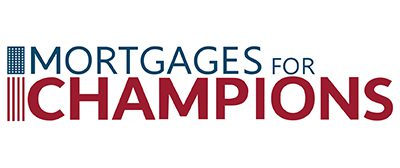
Healthcare professionals should get an excellent mortgage
Find the Best Mortgages for Medical Professionals
Choosing the right mortgage is one of the most important decisions you’ll make in your life—one that will affect you for years to come. And with so many plans to choose from, it can be hard to know which is the right one for you.
If you’re a medical professional, your experience with mortgage loans is probably complicated, especially if you’re just out of medical school. Luckily, there is a way you can achieve your goal of buying a house without waiting for your income to grow or your student loans to diminish.
Opting for a specialty mortgage loan can make it easier for you to overcome the obstacles of a conventional loan. Read on to find out more about mortgages for medical professionals.
 What is a Physician MortgageA physician loan is a mortgage designed specifically for medical professionals. Whether you’re just entering the field or have been practicing for a while, these specialized loans are intended to help you purchase the home of your dreams.
What is a Physician MortgageA physician loan is a mortgage designed specifically for medical professionals. Whether you’re just entering the field or have been practicing for a while, these specialized loans are intended to help you purchase the home of your dreams.
Oftentimes, medical professionals are at a disadvantage when it comes to buying a home due to student loan debt or the inability to provide a history of long-term employment. Physician’s loans take these factors (along with your potential for high earnings) into account and give you the means to overcome these obstacles and purchase a home sooner rather than later.
The Benefits of a Physician Loan
If you’re a medical professional, opting for a specialized loan could give you access to numerous benefits that conventional loans don’t supply. Some of your special privileges include:
- Low closing costs
- No private mortgage insurance, or PMI, no matter how small your down payment
- Affordable access to large mortgages
- Easy approval, even with student debt or a short employment history
These benefits can make the home-buying process easier and often save you money in the long run, making physician mortgage loans one of the best options for medical professionals.
Qualifying for a Physician Loan
As with any home loan, the first step in deciding if a physician loan is right for you is to find out if you are qualified.
Understanding loan qualifications can be a challenge. Luckily, there are a few factors that will determine whether or not you’re eligible for the benefits of a physician loan.
Who Can Qualify?
Physician’s loans are essentially mortgages for medical professionals, including doctors and nurses. Some lenders include dentists, optometrists and even veterinarians in their eligibility list.
The type of specialists who qualify is dependent on the mortgage lender. Generally, the list of qualifying professionals includes:
- Medical doctors
- Nurse practitioners
- Dentists and doctors of dental surgery
- Chiropractors
- Laboratory technologists
- Pharmacists
- Therapists
- Social workers
- Optometrists
- Podiatrists
- Veterinarians
However, you’ll need more than just a degree to access the benefits of a physician loan. To prove that you’re qualified, you’ll typically have to supply proof of employment and income.
Your Credit Score
 As with any mortgage, your credit score can have a big impact on your rates and eligibility. To get the best rates, a credit score of at least 720 is preferred, but don’t worry if yours doesn’t quite measure up. Even if your score is under 700, you may still be qualified for a physician loan.
As with any mortgage, your credit score can have a big impact on your rates and eligibility. To get the best rates, a credit score of at least 720 is preferred, but don’t worry if yours doesn’t quite measure up. Even if your score is under 700, you may still be qualified for a physician loan.
One factor that can make up for a low credit score is having a strong application in other areas. If you can provide a large down payment and have very few debts, the lender may be willing to overlook your score.
Similarly, your credit score may be low because you have what’s known as a “thin file.” Your file may be thin because you haven’t borrowed much in the past, leaving little on your record. If this is the case, lenders may be more forgiving than if you’ve earned a low score due to financial mismanagement.
The Down Payment
The down payment is another crucial aspect of the home-buying process. Luckily, with a physician loan, you don’t have to worry if you don’t have thousands of dollars to put down.
One of the biggest advantages of physician loans is that they often allow you to avoid mortgage insurance when your down payment is low or nonexistent. Those who aren’t medical professionals may be required to pay hundreds of dollars in mortgage insurance each month to protect their lenders. With a physician loan, lenders are more likely to waive these precautions even if your down payment is low.
Debt-to-Income Ratio
When deciding whether or not to approve you for a loan, lenders pay close attention to your debt-to-income ratio, or DTI. Essentially, your DTI is your monthly debt compared to your monthly gross income; in other words: what percentage of your income do you spend on debt?
Essentially, your DTI is your monthly debt compared to your monthly gross income; in other words: what percentage of your income do you spend on debt?
A low DTI is desirable because it suggests you can more easily manage your money, lowering your risk as a borrower. In most cases, lenders prefer your DTI to be no more than 43%, though some may allow up to 50%.
DTI and Student Loans
As a medical professional, you may have a large amount of monthly debt thanks to student loans, making it harder to buy a home. Luckily, physician loans take this into account.
Specialized mortgages for medical professionals take into account any student debt you may have and are thus more lenient when it comes to your DTI. If it’s impossible for you to attain a DTI of less than 50%, a physician loan should still allow you to achieve your dream of buying a home.
Additionally, there are some ways to lower your DTI on your own. You can defer your loans for a few years (though a small monthly payment will still be factored into your DTI), or even consider asking your employer about student loan assistance programs.
Your Employment History
Employment history matters when it comes to securing a mortgage. Typically, you would need to provide proof of employment and income. If you’ve just finished medical school or have recently started your own practice, you may not have the two years of steady history needed to qualify for most loans.
Luckily, you can get around this issue with a physician loan. Even with little employment history, simply being a medical professional means you have a high earning potential. Specialized loans take this into account and make it possible to secure a loan on as little as a contract or offer letter alone.
The Property
When it comes to qualifying for a physician loan, the property you’re attempting to buy has its own eligibility checklist. As a rule, physician mortgages can only apply to the purchasing or refinancing of a primary residence.
According to this rule, you must live at the home in question for the majority of the year. Unfortunately, these mortgages can’t be used as a way to finance a second home or investment property. However, some will provide financing for commercial units. Typically, single-family homes, two or four-family units, condominiums and manufactured homes are eligible for financing.
Physician Loans and Refinancing

Physician loans are not limited to the purchase of a home. If you’re looking to refinance your home, a physician loan may be the best way to do it.
Some mortgage providers offer refinancing of up to a 97% Loan to Value to lower the cost of your monthly payments. They may also provide cash-out refinance mortgages of up to an 85% Loan to Value. If your credit score or income goes up, or your DTI goes down, refinancing with a specialty mortgage could be the best way to save money and reduce your payments.
The Risks of a Physician Loan
As with any mortgage, it’s important to be well aware of the potential risks before applying.
With a physician loan, you’re considered a low-risk buyer, meaning lenders should be able to offer you lower rates. However, some may offer you low closing costs in exchange for increasing monthly payments for the duration of your loan.
Deferring student loan payments to raise your DTI is also a risky move, as the accumulating interest could be expensive in the long run. However, opting for a mortgage that allows refinancing could help you keep costs down.
Physician Loans: Are They Worth It?
With all of this information, you may still be wondering if physician loans are actually worth it.
The truth is, a specialty mortgage may be the best way for you to purchase a home as a medical professional, despite its risks. With a conventional mortgage, student loans and a high DTI can prevent you from getting approved for a loan, even if you’re able to make the monthly payments. Physician loans eliminate these factors and make it possible for you to purchase a home as soon as possible.
Mortgages for Champions: The Best Place for Specialized Mortgage Loans
Loans
To get the most out of your physician mortgage loan, look for a partner who is dedicated to helping you purchase the home of your dreams. With Mortgages for Champions, you’ll have access to a program that reduces the paperwork and out-of-pocket costs typically associated with financing.
As a medical professional, you deserve the best mortgage available. Get started right now with a free, no-risk mortgage quote today.
Additional links and articles – https://www.mortgagesforchampions.com/home-loans-for-doctors-nurses/ – https://www.mortgagesforchampions.com/home-loans-for-doctors-nurses/ – https://www.mortgagesforchampions.com/mortgage-loans-for-medical-champions/ – https://www.mortgagesforchampions.com/purchasing-a-home-heres-what-you-need-to-consider-2/
–Getting a Mortgage: Is Your Interest Rate Critical? Are Housing Speculators Driving up Home Prices? Best Healthcare Workers Mortgage & First Time Home Owners Program


